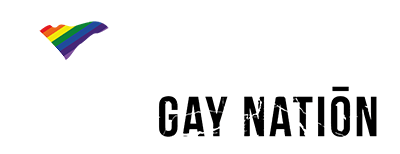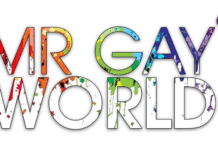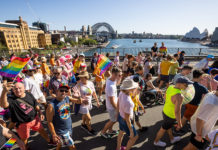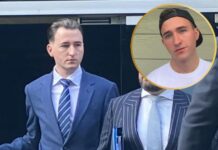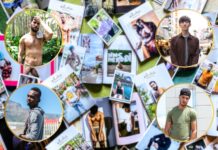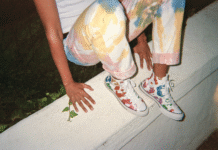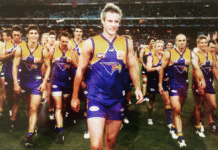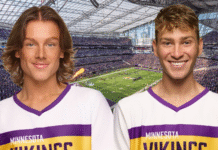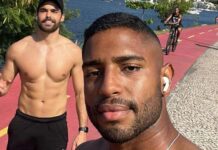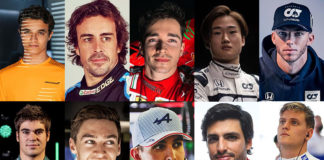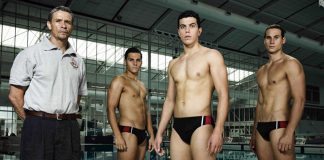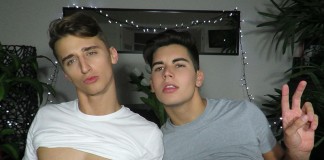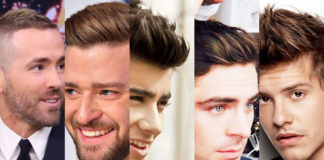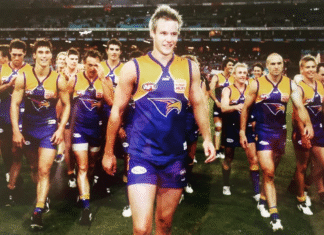
It is expected the rugby league player who had homophobic tattoos exposed this week has covered them up or had them removed as he has been selected to play in his team’s match on Saturday in Cronulla.
The player, named by other media sources, will take the field for his team the Aquinas Colts on Saturday in the Power Waste Management Cup a competition under the NSW Rugby League system.
It has been revealed initial images of the player with the homophobic slurs tattooed on his legs went viral on June 8 and it was only after last weekend’s match where he was named best player that he was photographed again that it all came to a head.
Although the team and the league have attempted to have the photos removed they are still well and truly still appearing on social media sites.
The club has said that they are following industry guidelines and the messages expressed on the player’s legs don’t reflect the team’s views. They also said he would cover them up before his next game, this weekend.
Speaking with Gay Nation, an NSW Rugby League(NSWRL) spokesperson pointed to the organisation’s commitment to providing a safe, fun and inclusive environment for all people, including those of diverse sexualities and genders.
The NSWRL has a zero-tolerance to any form of bullying, harassment or vilification towards people with diverse sexualities and genders. This includes forms of homophobia, biphobia or transphobia.
The sport is a member of Pride in Sport and in April this year, we were awarded Bronze Tier Status at the annual Pride In Sport Awards in Melbourne.
Amongst other programs they do with head office staff members, they also have an “Understanding Sexual Vilification” Fact Sheet which outlines what phobia of any sort is and how it can be reported.
However, it is unknown whether this is distributed to all players, coaches and spectators of the NSWRL competitions or just hidden away on their website to show that they have a policy in place.

This leads to similar concerns with other sports that they are willing to make changes to policies and provide the required “Pride Training” for their staff in national and state offices. Still, in terms of getting the information and training out to those taking part in the sport every day, evidence is lacking.
National Program Manager for Pride in Sport Beau Newell said they have the evidence that shows sports need to do a lot more.
“I think it’s really important for us to remain realistic and understand that a sport, no matter the size, whether they’re a massive organisation like the NRL or AFL or even a grassroots community club, they’re all going to have different levels of capacity and even just different hurdles that they need to go through internally,” Newell explained to Gay Nation.

Pride in Sport have created an index for sports to assess their own practices, determine what constitutes good practice and benchmark their initiatives against an external measure and other sporting organisations.
Pride in Sport then works with these sports to help them improve what they are doing.
“In order for you to be considered best practice, if you want to be proven to the community that you are safe and inclusive, then you must do an exceptional amount of work,” Newell continued.
“While many sports organisations will put a big focus on their internal work, and that’s certainly a big piece of our work, where we help organisations on their workforce side of things.
“When it comes to addressing incidences on the field or on the pitch or whatever a sport might be, a lot of that initially starts with policy development.
“Our index also goes to the extent of saying or suggesting and encouraging sports to consider what they should do if an incident does occur on the field. What should sanctions look like? What other elements should be considered? So making sure that people are educated when they’re making decisions about homophobic incidences, for example, ensuring that education is a part of the sanction or disciplinary process for athletes if that does come through their processes.”
As we see with many different sports, it’s all well and good to have the policies written up and ready to go, but if nothing changes at ground level does it just become a box-ticking exercise for these organisations?
Sports are questioned about this right at the start of engagement with Pride in Sport to make sure they are tackling diversity and inclusion for the right reasons.
“When my team and I go into sporting organizations, we often ask them the question, what are you doing in this space to promote that you are inclusive?”, Newell explained.
“I mean, it’s one thing to wave a rainbow flag, but at the end of the day, what have you got to back it up.”
It will be interesting to see if the NSWRL and the Cronulla Junior Football competition back up their words with action this weekend.
Last Updated on Jun 21, 2024
The news team for Gay Nation love tips from our readers. Got tips or a news story that you would like published? Go here to tell us something.
Visit the Gay Nation store Now

